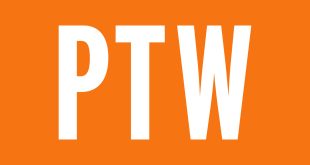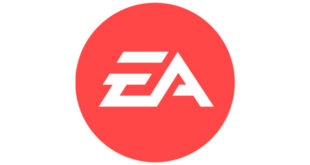Every issue of MCV/DEVELOP magazine is wrapped up by an industry leader. For the April-May issue we spoke to Rachel Rakowski, global head of gaming at We Are Social
What is your greatest achievement?
My greatest personal achievement is succeeding in my mission to become a leader in the gaming industry. An interviewer once asked me why I moved around so much during my career, and said that doing so made me a less attractive candidate. However, I believe that to be a successful leader, you must completely understand what each person on your team does. How can you do that without doing those jobs yourself?
Because I stuck to my principles and this approach, because I put in the work, I’ve been able to transform every business I’ve been a part of for the better. My hope is that by ‘sticking to my guns’ and overcoming the obstacles in my way, I have blazed a trail for other female leaders who follow the same principles to be the best.
What ambitions do you have for the future of We Are Social Gaming?
I want to educate brands that there’s more than one way to reach gamers – more levels to play. Effective activations don’t have to cost millions, and you shouldn’t try something in Fortnite or Roblox just because you saw another brand do it. My goal is to help brands connect with their audience in a meaningful and authentic way that works for them.
For developers, I want to help them level up their ‘social game’ through thriving communities. Coming to the table with bog-standard assets saying ‘our new game is coming out on 15th June’ with a nice picture doesn’t get people excited or trigger an emotional response that will lead them to convert. There are better ways to engage audiences and bring lapsed players back into the fold.
What do you see as the gaming industry’s biggest challenges in the years ahead? How should it overcome them?

The biggest challenge right now is the fallout from over-hiring in the pandemic and the subsequent layoffs impacting the games industry. What we’ll be seeing from a lot of AAA’s is investments in ‘safe bets’ in the form of existing IP’s they know will sell, rather than taking risks – being bold and creative with new ideas or IP that will bring players in. This, I believe, will have a negative impact on AAA revenue in the long-term and will lead to even more job cuts in the AAA sector, which is arguably where most people in the games industry are employed.
Indie games are having such a strong moment right now, and they’re comfortable with taking risks, meaning that games such as Palworld and Helldivers 2 are stealing market share from the AAA’s and for a fraction of the cost of a AAA title. For AAA developers to survive amongst the economic uncertainty, they’ll need to challenge their way of thinking; taking calculated risks with either bold new IP or revolutionising their existing IP to make the offering more exciting to bring lapsed players back. For publishers, putting in the work to find hidden gems and investing in indie titles will be key to their success.
Do you think the industry is in a healthy place – or headed in the right direction, at least?
Revenue-wise, it’s still pretty healthy. For those working in it, maybe not so much.
The games sector needs a shake up in practice, particularly when it comes to AAA developers/publishers. We’re seeing this massive resurgence of indies titles and on the whole, they’re successful because they are focusing on one thing; making a great game.
AAA games don’t need a vastly new approach, they just need to go back to the basics. As for what that actually means, I’d like to see more developers invest in making games that they want to play themselves. Not just the titles that will make them the most money according to data. This is the principle in which Mike Morhaime built Blizzard Entertainment, and how games like World of Warcraft came to be.
Data can help inform and put you on the right path, but it doesn’t tell you the destination. A great game that’s marketed correctly will sell. Believing in your teams that help create and shape these wonderful worlds we play in will put us back on the right path. Maybe I’m a bit of a romantic for thinking this way, but if indie games are stealing market share by following this principle, it must have some merit worth considering.
Visibility is a perennial problem for games. How do you solve it?
Visibility isn’t a massive problem for AAA games, thanks to instantly recognisable names and big PR machines. But how can other brands cut through the noise with so many titles released each year?
That’s why social media has been a massive superpower for developers and publishers trying to spread the word about a new launch. If you do social well, communities will latch onto you.
Games have to find the hooks and target the right people – and yes, then you can create fun and interesting posts that can go viral. It’s about pulling the right levers.

 MCV/DEVELOP News, events, research and jobs from the games industry
MCV/DEVELOP News, events, research and jobs from the games industry




